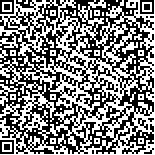| 王欢欢,程爱民,王治涛,马清林,王昌燧.甘肃武威博物馆馆藏大藏经用纸的相关工艺研究[J].中国造纸学报,2014,29(2):33-37 |

二维码(扫一下试试看!) |
| 甘肃武威博物馆馆藏大藏经用纸的相关工艺研究 |
| The Manufacture Technology of Tripitaka Paper Collected by Wuwei Museum in Gansu Province |
| |
| DOI:10.11981/j.issn.1000-6842.2014.02.33 |
| 中文关键词: 甘肃武威 大藏经 纸张纤维 颜料 |
| Key Words:Wuwei tripitaka paper fiber pigment |
| 基金项目: |
|
| 摘要点击次数: 5113 |
| 全文下载次数: 2727 |
| 中文摘要: |
| 利用光学显微镜、显微激光拉曼光谱、X射线荧光光谱、X射线衍射等技术,对甘肃武威博物馆馆藏大藏经用纸的纤维、填料以及染色、书写、绘制材料等方面进行了较为全面的观察和测试,旨在探明其相关工艺和保存状况。分析结果指出,该大藏经用纸以亚麻、苎麻、构皮及棉花等纤维为原料,经过石灰浸沤及切割、舂捣加工,并以高岭土为填料,制成用于书写经文的纸张。再以靛蓝染色,并以石墨涂敷纸张、赭石描框,最后,以银泥书写经文。该大藏经的保存状况不甚理想,粘连、虫蛀等损害和破损程度都颇为严重,亟待修复保护。此项工作为元明时期河西地区宗教用纸的研究以及该批大藏经的修复和保护提供了重要信息。 |
| Abstract: |
| The fiber, filler, pigments of tripitaka paper collected by Wuwei Museum in Gansu Province were analyzed with optical microscope, micro laser Raman spectroscopy, X-ray fluorescence spectrometry and X-ray diffraction to investigate the manufacture technology and conservation status of the samples. The results indicated that tripitaka paper was made of flax, ramie, paper mulberry bark and cotton; filler was kaoline; fibers were retted with lime water and suffered from cutting and beating; paper was dyed with indigo blue, coated with plumbago, the tripitala was written with silver mud, and its surrounding was drawn with hematite. The samples conservation status was unsatisfactory:they were binded, fracture, and damaged by worms seriously, required restoration. This work obviously contributed to the study of religion papers from Yuan to Qing Dynasty at Hexi region and the tripitaka restoration and protection. |
| 查看全文 查看/发表评论 下载PDF阅读器 HTML |

